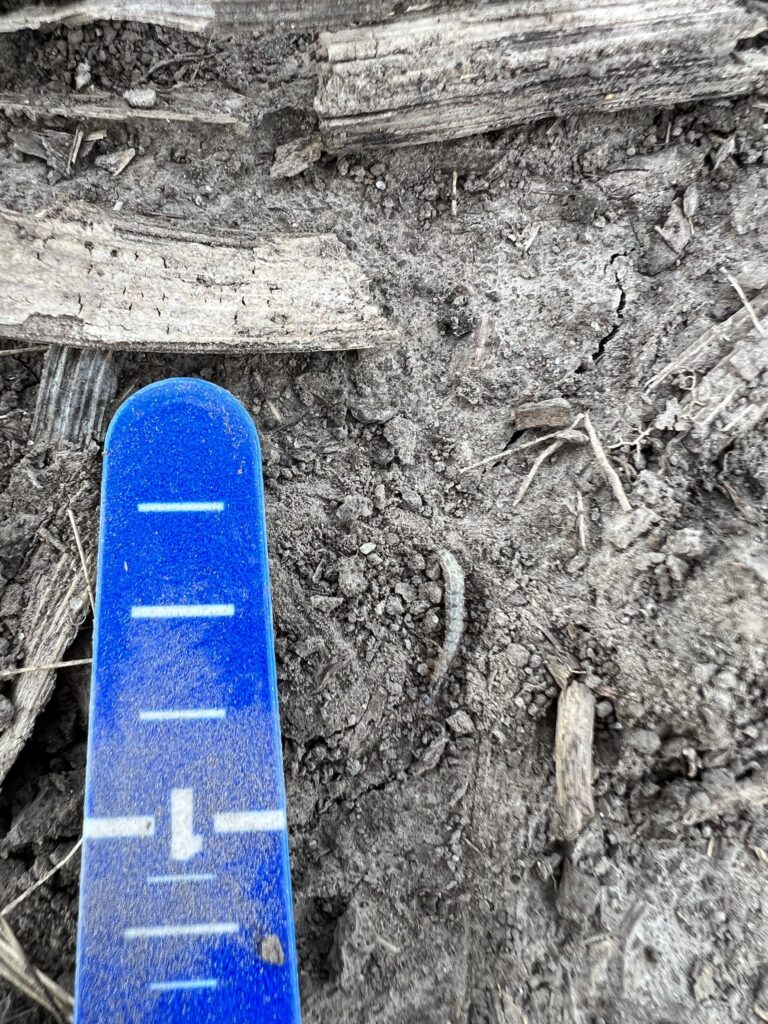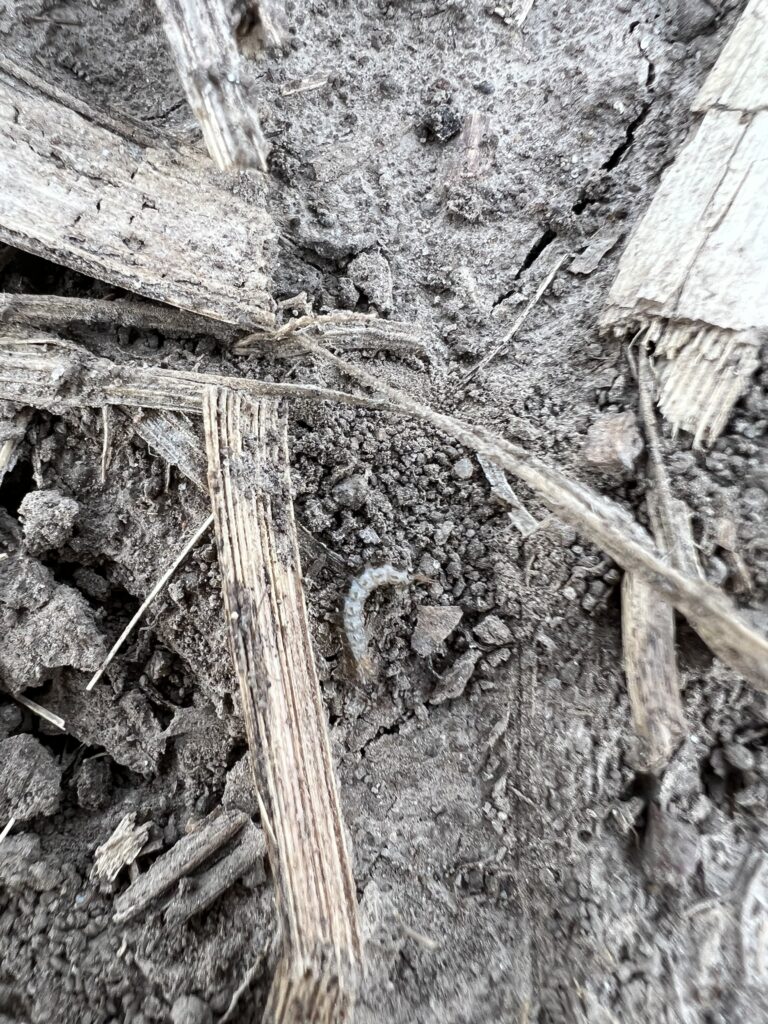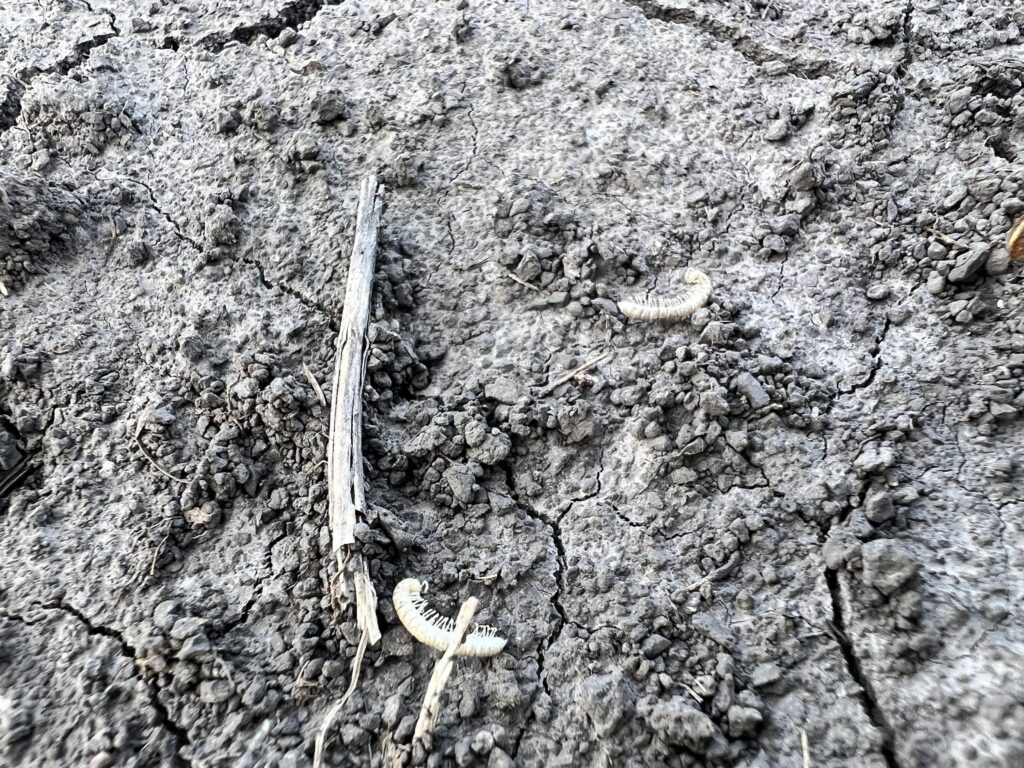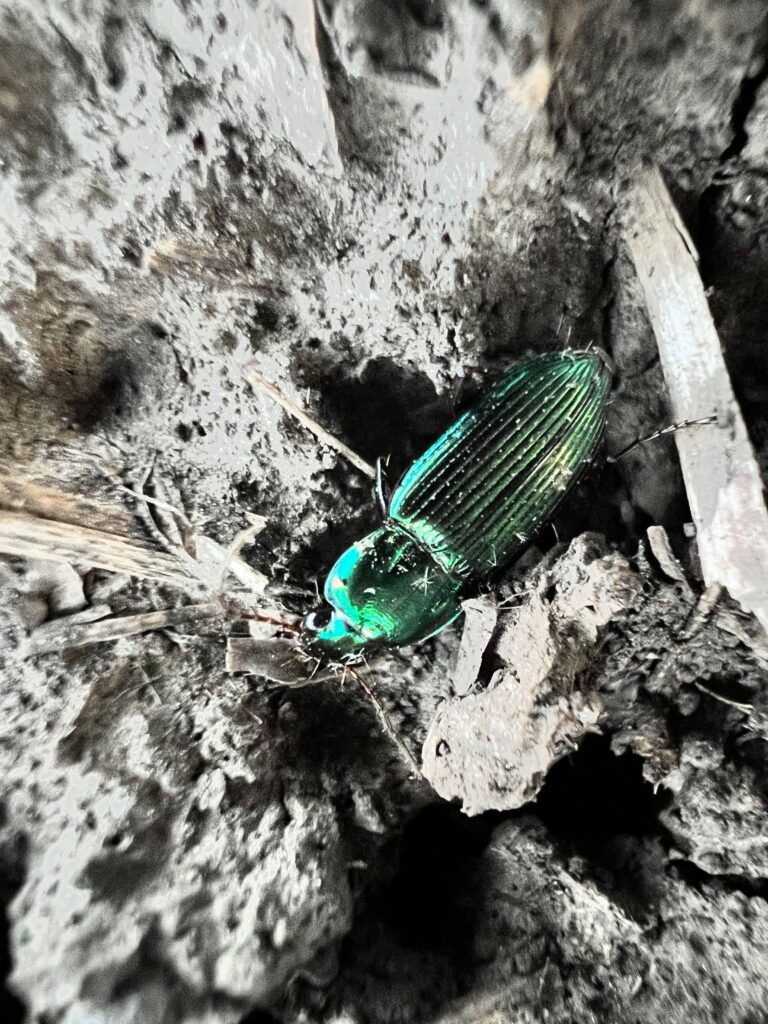During a recent field scouting adventure and digging in the soil, we kept turning up insect larvae that resembled a centipede. Dr. Nick Seiter, U of I Extension Entomologist, identified the larvae as the younger version of a ground beetle. A ground beetle’s life cycle consists of 4 stages: egg, larvae, pupa, and adult, which will be found underground. Even without any pincer-like mandibles yet, they still hunt and feed on pests in the soil.

“My whole life is a dark room. One big, dark room.” — Lydia Deetz in the movie, Beetlejuice
The more interesting (or sad part) was that we also observed similar ground beetle larvae that appeared to have perished in a soybean field that had been hard hit with frost.


“What did you expect, you’re dead.” – Juno in the movie Beetlejuice
Ground beetles are the overarching name given to insects in the Carabidae family of beetles in the order Coleoptera. They are known to be the largest insect families with about 40,000 species around the world and with 2,339 carabid species residing in the U.S. Ground beetles are known to be warriors or predators, with long legs and powerful mandibles, which are important when it comes to biological control of other insects on farms. They mainly hunt at night on the soil surface, but sometimes climb foliage in search of food. They eat anything that comes along and are considered opportunistic feeders of pests such as aphids, moth larvae, beetle larvae, mites, and more. Some beetle species even feed on snails with their special mouthparts.

Photo provided by Abigail Peterson
“I myself am strange and unusual.” — Lydia Deetz in the movie Beetlejuice
Not only are ground beetles predators, but they are also considered omnivorous, which means they are seed predators as well. They can also have a serious impact on weed suppression on your farm by feeding on weed seeds. Without seed predators, weed emergence can increase up to 30 percent (Blubaugn and Kaplan, 2016). Overall, ground beetles should be considered the king (or queen) when it comes to generalist predators that contribute to natural pest suppression on farms. But we can’t forget that there are certain species of ground beetles that eat other beneficial predators.
“I’ll eat anything you want me to eat, I’ll swallow anything you want me to swallow! So, come on down, and I’ll chew on a dog!” — Beetlejuice movie
As many adopt cover cropping or wheat into their farm system, they will also be increasing the abundance and diversity of “beetle banks” that will provide conservation biological control. All in all, less tillage and greater plant diversity for years to come will be the recipe that provides habitat and prey for ground beetles to flourish on farms.
“Go ahead, make my millennium.” — Beetlejuice movie
References:
An Introduction to Ground Beetles: Beneficial Predators on Your Farm | eOrganic
44 Spooky ‘Beetlejuice’ Quotes To Soothe Your Undead Soul (scarymommy.com)


 and then
and then